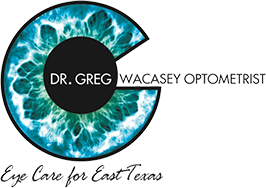
Steroid eye drops have been a significant game-changer in optometry. They play a vital role in managing various eye conditions, providing much-needed relief from inflammation and pain. Steroid eye drops act by reducing inflammation and immune responses, thereby alleviating symptoms of certain eye conditions. However, as with any medication, they come with their own set of risks and considerations.
The Role of Steroid Eye Drops in Treating Eye Conditions
Steroid eye drops are an integral part of the toolkit for treating common eye conditions. They work by decreasing inflammation and immune reactions, reducing redness, swelling, and pain. Specifically, they inhibit the body's production of substances that trigger inflammation. This makes them particularly effective in treating conditions characterized by excessive inflammation.
For instance, in allergic conjunctivitis, steroid eye drops can help reduce the inflammation of the conjunctiva, relieving symptoms such as itching, redness, and watering of the eyes. Similarly, in uveitis, which involves inflammation of the middle layer of the eye, steroid eye drops can help control the inflammation and prevent vision loss.
Post-operative use of steroid eye drops is another common application. After surgery, the eye tends to respond with inflammation, which if uncontrolled, can lead to complications such as scarring and vision loss. Steroid eye drops can help manage this inflammation, promoting healing and ensuring a successful outcome.
It's worth noting that while steroid eye drops can provide immediate relief, their long-term use can lead to potential complications. Understanding the risks and considerations associated with steroid eye drops is critical for anyone using or considering them.
Risks and Considerations of Steroid Eye Drops
While steroid eye drops serve a crucial role in managing various eye conditions, their use is not without risks and considerations. One of the primary concerns with the use of steroid eye drops is the potential for increased intraocular pressure (IOP). Elevated IOP is a significant risk factor for glaucoma, a condition that can lead to irreversible vision loss if not managed promptly.
Another risk associated with steroid eye drops is the possible development of cataracts. Long-term use of these drops can lead to the formation of posterior subcapsular cataracts, a type of cataract that forms at the back of the lens and can significantly affect vision.
Steroid eye drops can also increase the risk of infections. They suppress the immune response, making the eyes more susceptible to bacterial, viral, and fungal infections. Therefore, their use should be closely monitored by a healthcare professional.
The Importance of Consulting an Optometrist
Given the potential risks associated with steroid eye drops, it's imperative to consult an optometrist before starting their use. An optometrist can evaluate your eye condition, discuss the potential benefits and risks of steroid eye drops, and determine if they are the right treatment option for you.
Regular follow-ups with an optometrist are also crucial when using steroid eye drops. These check-ups can help monitor for potential side effects, such as increased IOP or the development of cataracts. If detected early, these conditions can be managed effectively, preventing vision loss.
Additionally, an optometrist can advise on the appropriate duration of use for steroid eye drops. Long-term use of these drops should generally be avoided due to the associated risks. An optometrist can guide you on how to taper off the drops safely when they are no longer needed, minimizing the risk of rebound inflammation.
Making an Informed Decision about Your Eye Health
Steroid eye drops are a powerful tool in the management of various eye conditions. Consulting an optometrist is crucial before starting the use of steroid eye drops. Regular follow-ups can ensure that any potential side effects are detected and managed promptly. Understanding the role and risks of these drops can help you make informed decisions about your eye health.
If you have any questions or concerns about the risks and considerations of steroid eye drops, contact Dr. Greg Wacasey at our office in Longview, Texas. Call (903) 403-2020 to schedule an appointment today.









